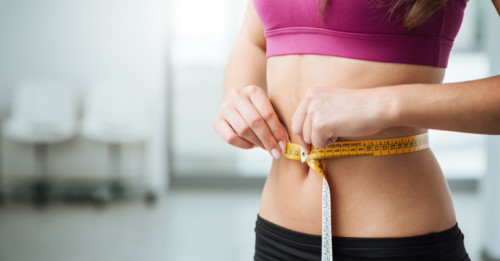Thinking about using CBD products for weight loss? Here are the products that meet our experts' criteria for quality and safety.
CBD for weight loss
BREAKING: Newly Legalized Herb Relieves Pain - Available Without A Prescription
More than two-thirds of American adults are either overweight or obese, so it’s not surprising that many people are looking for help in losing weight. For some, that help appears in the form of cannabidiol (CBD), the nonpsychoactive component of the cannabis plant.
“From preclinical research and anecdotal data, people report that CBD helps with appetite suppression and weight loss,” says Martin A. Lee, co-founder and director of Project CBD, a California nonprofit that promotes CBD research, and author of Smoke Signals: A Social History of Marijuana–Medical, Recreational, and Scientific.
However, the evidence isn’t strong enough to suggest that commercially available CBD products can actually help you lose weight. Here’s what you need to know before investing in CBD for weight loss.
What is CBD?
CBD and delta-9-tetrahydrocannabinol (THC) are the two main active ingredients in cannabis. While CBD doesn’t make you high, THC does. In the United States, most CBD comes from hemp, a relative of the cannabis plant that contains much lower levels of THC. Since the Farm Bill passed in 2018, farmers have been able to grow hemp as long as it contains no more than 0.3 percent THC.
Thanks to CBD’s real and purported health benefits, the market has seen an explosion of products, everything from CBD creams to CBD oils and tinctures, CBD capsules, CBD edibles, and if you can believe it, suntan lotions. You can also vape CBD oil, but this has been linked to lung injuries, according to the Centers for Disease Control and Prevention.
What science says about CBD for weight loss
Cannabis’ Schedule 1 status makes it incredibly difficult to do CBD research involving humans. “Most of the research that’s been done on CBD has been animal with some clinical [human],” says Lee.
One of the few human studies, published in 2019 in the International Journal of Epidemiology, found that people who reported using marijuana regularly had a lower body mass index (BMI) than those who didn’t. It wasn’t clear which component of marijuana was responsible.
Studies, like a 2018 study published in the International Journal of Molecular Sciences, so far suggest that CBD does suppress appetite, at least in mice and rats. This is due to its effect on two cannabinoid receptors: CB1 and CB2. CBD acts to lower the activity of CB1, which normally would increase appetite. People who are obese have more appetite-friendly CB1 receptors.
CBD and diabetes
Being overweight or obese is a risk factor for type 2 diabetes. Preliminary research suggests a potential benefit of CBD for conditions related to type 2 diabetes and, as a result, obesity. A study in Cell Metabolism found that slowing down CB1 in obese mice (who had a surplus of these receptors) reduced insulin resistance. Insulin resistance is more common in overweight and obese people and is a major player in type 2 diabetes. CBD also lowered blood sugar in people with type 2 diabetes, according to a 2016 pilot study in Diabetes Care. Pharmaceutical companies are exploring whether these receptors are good targets for new diabetes drugs.
Even though the science is still emerging, many people do use CBD products to control appetite and shed pounds.
Is CBD safe?
The good news is that most products are generally safe. “Ultimately each person is different, but CBD is extremely well-tolerated,” says Dr. Goldstein.
That said, CBD can interact with other drugs. Check the National Library of Medicine for a full list of potential interactions. It’s also a good idea to speak with your doctor.
Side effects can include nausea, fatigue, diarrhea, and irritability. And long-term use could harm your liver, according to the FDA.
Is it legal to buy CBD?
Yes and no. Well over half of the United States—36 states in all—have legalized medical marijuana and CBD. It’s also legal in the District of Columbia, Guam, Puerto Rico, and the U.S. Virgin Islands, according to the National Conference of State Legislatures. It’s best to buy CBD products at a medical dispensary in a state where the compound is legal.
Things get murkier at the federal level. Where your CBD comes from (hemp or cannabis) plays a role.
The U.S. Drug Enforcement Administration considers marijuana and its components (including CBD) Schedule 1 substances. “CBD comes from the cannabis plant, which is considered federally illegal,” says Bonnie Goldstein, MD, medical director and owner of Cannacenters, and author of Cannabis is Medicine: How Medical Cannabis and CBD Are Healing Everything From Anxiety to Chronic Pain. A bill to remove marijuana from the Controlled Substances Act has passed the House but still needs to get through the Senate.
CBD from hemp is a different matter. The 2018 Farm Bill changed how hemp products (including CBD) are regulated. Provided they contain no more than 0.3 percent THC, hemp products are not considered controlled substances under federal law.
Only one drug containing CBD, Epidiolex, has been approved by the Food and Drug Administration (FDA). It treats different types of epilepsy.
Types of CBD
All CBD products, regardless of whether they’re in capsule, oil, tincture, or another form, come in three basic varieties:
- Full-spectrum CBD: Contains all of the components of the hemp plant (Cannabis sativa), including CBD and small traces of THC and terpenes, which are plant compounds.
- Broad-spectrum CBD: Contains all of the ingredients in full-spectrum CBD, except THC.
- CBD isolates: The purest form, containing only CBD.
According to Lee, broad- and full-spectrum products often provide a stronger effect because the ingredients work together synergistically, something called the entourage effect.
When using CBD products, you’ll also have to decide on a dose. This is largely trial and error and Lee recommends “starting low and going slow.” Project CBD has a dosage guide, as do some companies that sell the products.
Buying CBD products
TRENDING: Big Pharma In Outrage Over This Breakthrough Natural Painkiller
Because CBD is not uniformly legal throughout the country, the market is largely unregulated. This makes it extra important to do some homework before committing. “I think people should do research when they’re talking about their health,” says Lee. This could include going to a health professional who specializes in medical marijuana or a medical dispensary. If you’re going it alone, follow these guidelines:
- Always ask the company for a Certificate of Analysis (COA). This verifies that the product has been independently tested by a third-party lab and that the ingredients are what the company says they are.
- Make sure you can contact the company to ask questions.
- Buy U.S. grown hemp. This reduces the chances of contamination.









